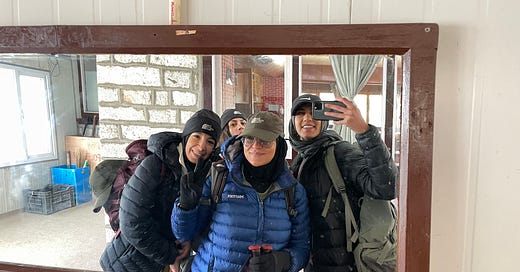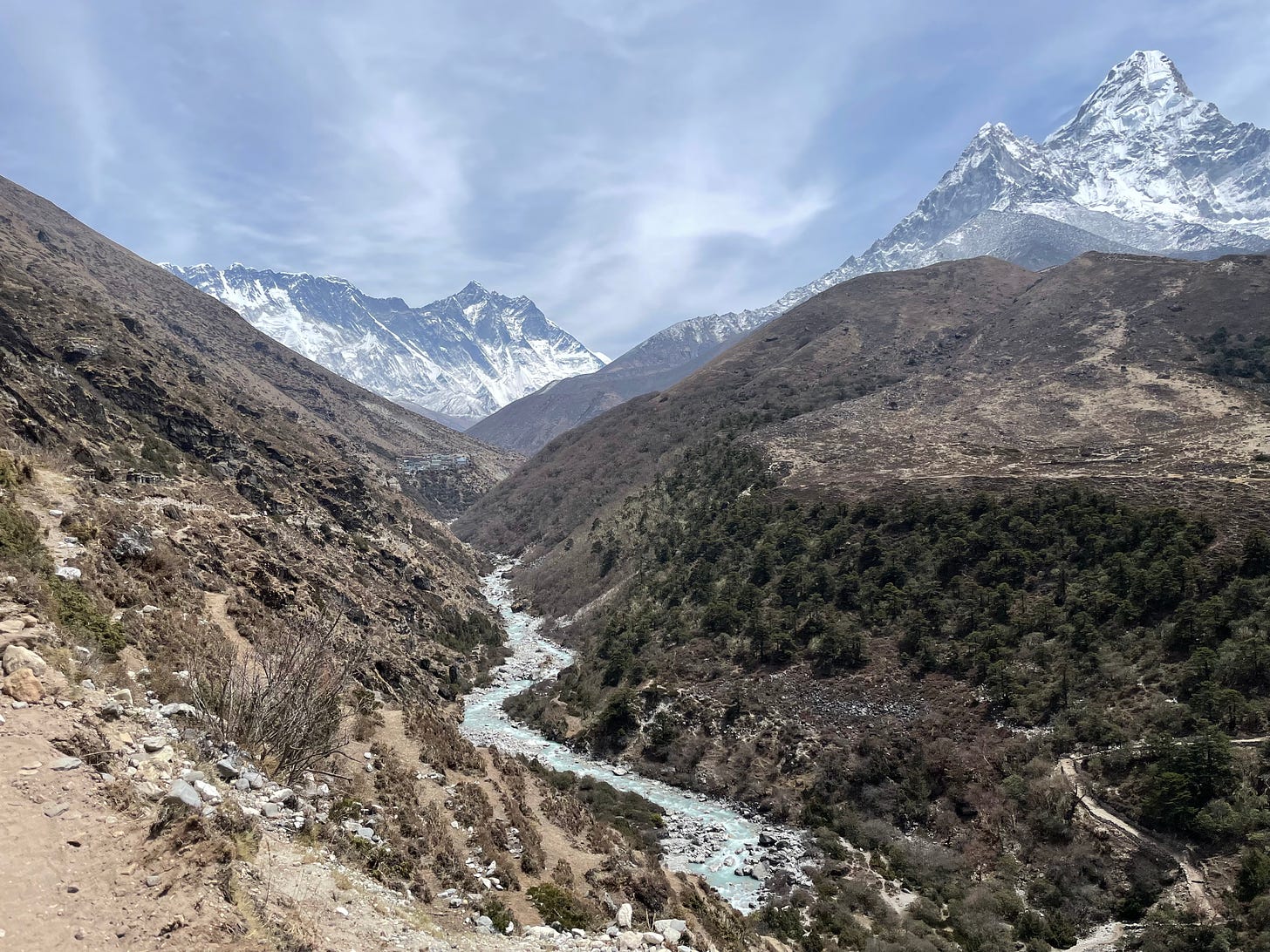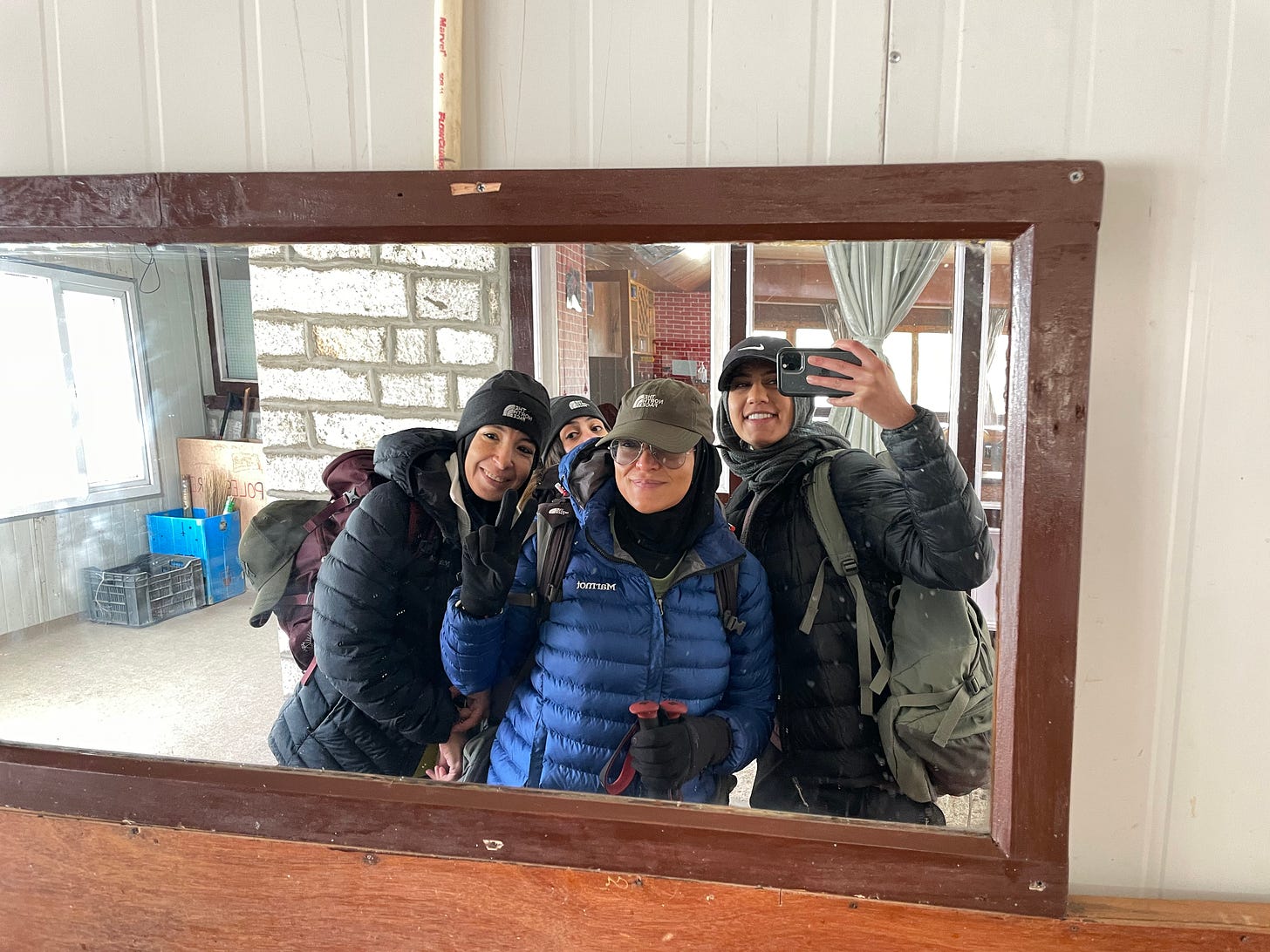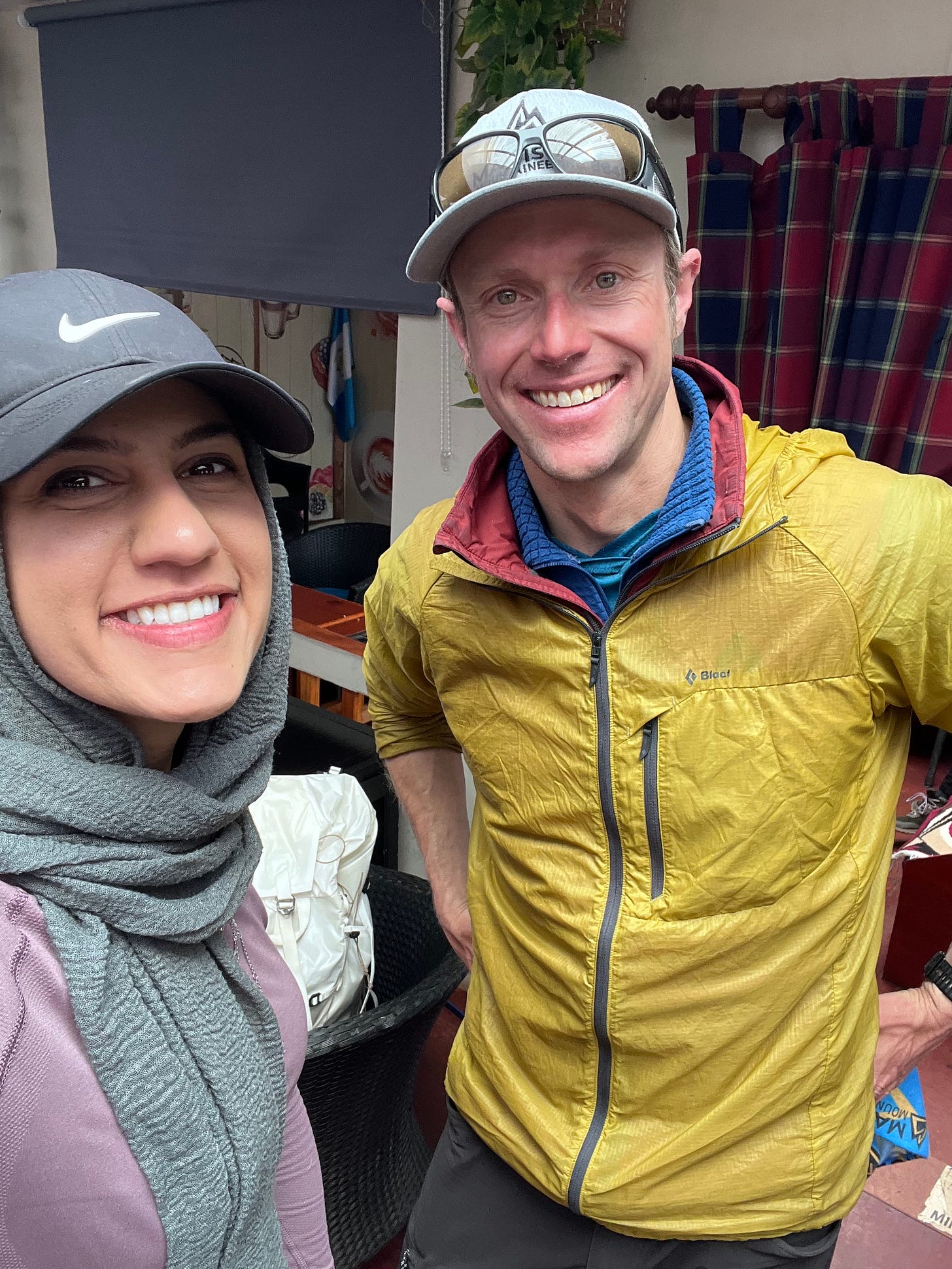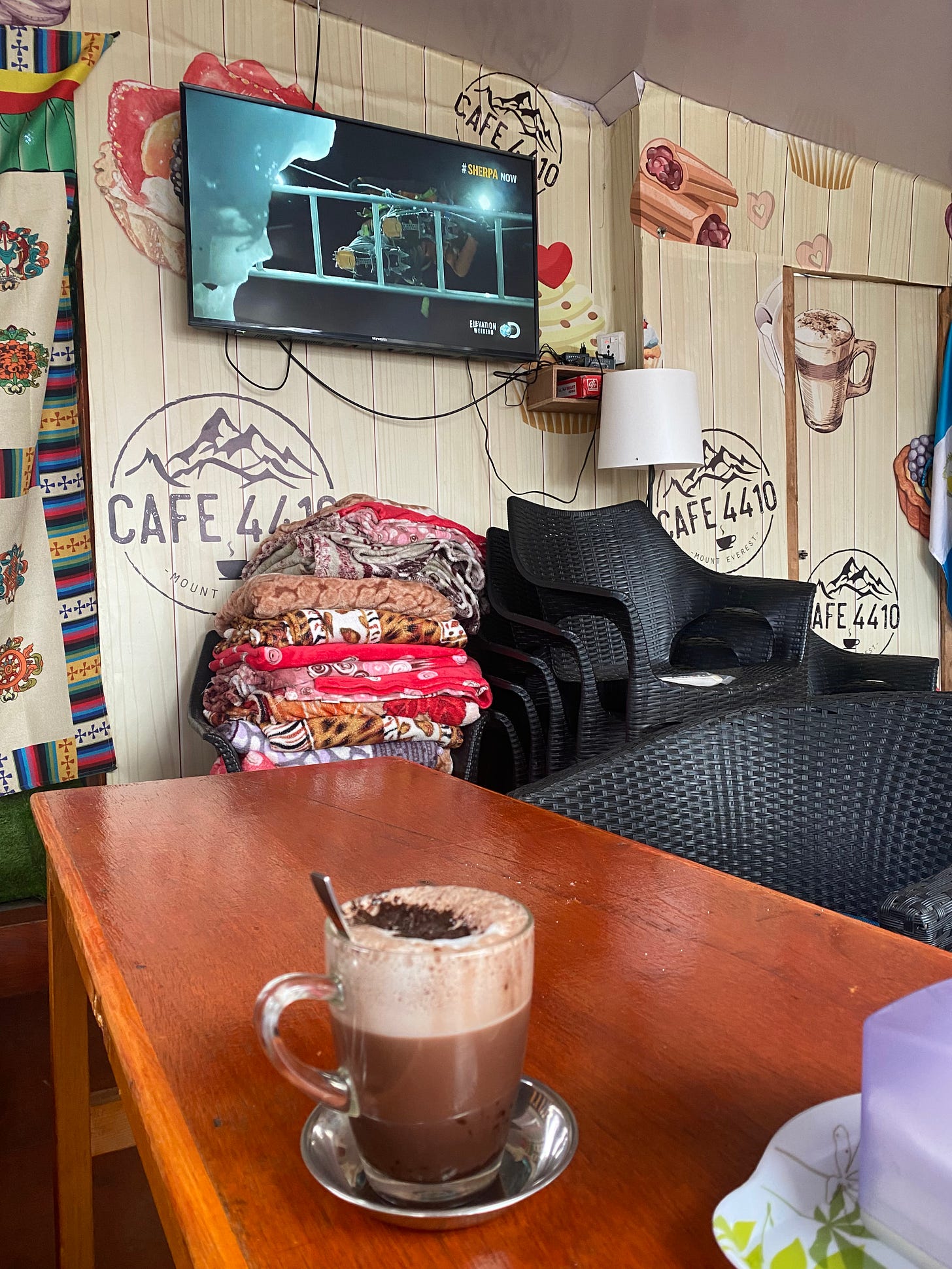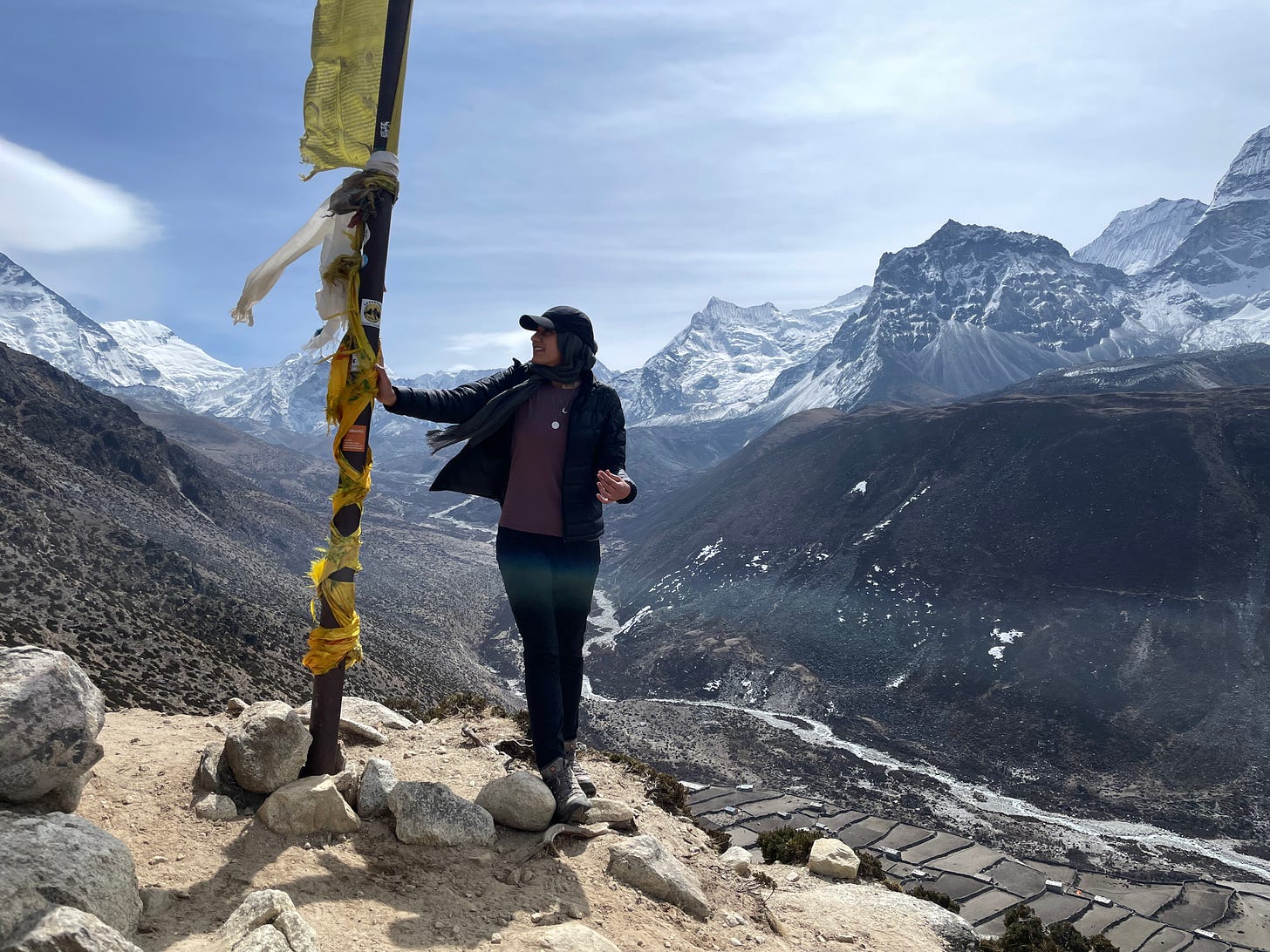On Day 5, we hiked close to 7 miles to Dingboche and this was the first day the sun was finally out and we had stunning views of the surrounding peaks. Once we arrived at the lodge, we would be spending two nights there and the following day would be a short acclimatization hike. We need to rest and prepare for the next two days with the plan to reach base camp on April 29th (Day 8).
On our Day 6 hike, we met a couple that was hiking to base camp to meet their daughter who is planning to summit Everest this season. They are Pakistani-American and are currently living in DC. Once we made it back to the lodge for lunch, I started following their daughter (@nadiaclimbs) and was in awe at how much she’s done. Mt. Everest is her last mountain to complete the seven summits and what we learned from her parents is that she’s not sponsored at all, she’s been paying for all of her expeditions. Over lunch we were discussing the seven summits and Manal’s goal to complete them but the biggest barrier is not having any sponsorships and the extremely high cost of these expeditions.
We headed to Cafe 4410 around 1 pm, they typically show a documentary at 2 pm and today’s documentary was on Sherpas. Manal ran into a friend there, Danah Al Ali, she’s heading up the mountain to summit Everest and would be the first Emirati woman to do so inshaAllah. Her guide, Terray, works with Madison Mountaineering and this would be his third summit. I talked to him for a while about the mountaineering scene in the US and I shared with him some of my training plans and he gave me some great advice. As expected, his dad was also a guide and he learned from him (see previous post on how some of these skills are passed through generations and leave those underrepresented at a disadvantage). The conversation reaffirmed the importance of mentorship and I found that there are still folks willing to help and it’s just a matter of sharing your passion and connecting with the right people.
The documentary followed the lives and experiences of some key folks in mountaineering in Nepal, Russell Brice (owner of the largest guiding operation on Everest) and Phurba Tashi (a Sherpa mountaineer that has summited Everest 21 times). The tragedy with the avalanche in 2014 and the deadly earthquake in 2015 gave people the chance to question the ethics of how these expeditions are run and allowed the Sherpas to makes demands for better conditions. The government makes a lot of money from these expeditions and summiting Everest is just another service industry. The Sherpas are an ethnic group here and their lives have transformed and they rely on these jobs to support their families. Mountaineering is where the money is. But at what expense? They cross some of the most dangerous routes (the icefall between base camp and Camp 1) more often than foreign climbers and so the risk and mortality rate is much higher. We pursue these summits because it’s a dream, a legacy, and a challenge that folks aspire to accomplish but is there a moral justification to these pursuits when the risks to the most vulnerable is so high?
One of the elders that’s critical of the rise in mountaineering in Nepal says that “people used to grow and harvest potatoes to survive, what is the point of climbing mountains?” The fatalities from both tragedies is also what eventually led Phurba to retire from climbing (his family was not happy with his climbing career and he made the decision that is no longer worth it). Even though he was close to breaking the record of the most Everest summits and could have claimed that title. Most of the conversations I’ve had today have led me to think a lot more on being goal-oriented, and that being headstrong and determined can take you very far. However, there are realities that we face where these goals (as much as they would be nice to accomplish) are no longer worth it. Pushing in the face of a challenge is inspiring, but knowing when to stop is also admirable. You don’t want to risk your life at the top of a mountain by pushing for a summit when the conditions aren’t ideal and your skills aren’t sufficient, and there’s a lot of wisdom that can be gained in those situations to allow you to develop intuition to make the better decisions for the future.

